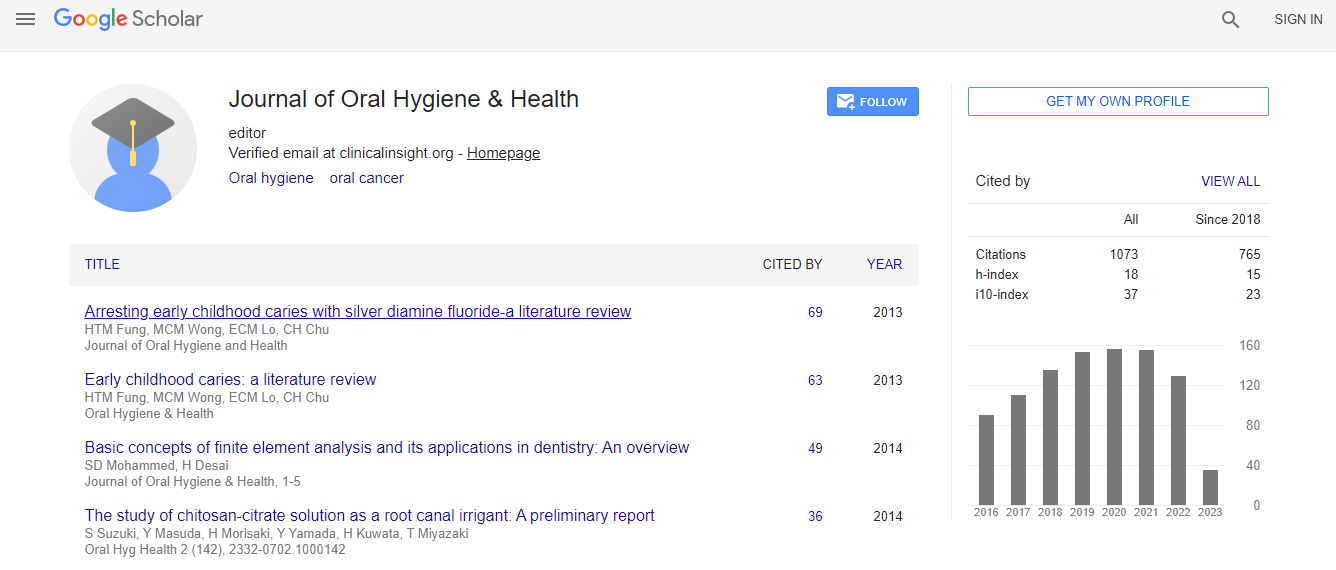Review Article
Consent in Dental Practice: Patient’s Right to Decide
Chandan Dhingra1* and Richa Anand2
1Department of Public Health Dentistry, Sudha Rustagi College of Dental Sciences and Research Kheri More, Village Bhopani, Faridabad, India
2Department of Public Health Dentistry, I.T.S Dental College, Hospital & Research Centre, Greater Noida, Uttar Pradesh, India
- *Corresponding Author:
- Chandan Dhingra
Department of Public Health Dentistry
Sudha Rustagi College of Dental Sciences and Research
Kheri More, Village Bhopani, Faridabad, India
Tel: +91 9953131763
E-mail: chandandhngr@gmail.com
Received Date: March 06, 2014; Accepted Date: March 29, 2014; Published Date: April 05, 2014
Citation: Dhingra C, Anand R (2014) Consent in Dental Practice: Patient’s Right to Decide. J Oral Hyg Health 2:129. doi:10.4172/2332-0702.1000129
Copyright: © 2014 Dhingra C, et al. This is an open-access article distributed under the terms of the Creative Commons Attribution License, which permits unrestricted use, distribution, and reproduction in any medium, provided the original author and source are credited.
Abstract
Consent is the legal issue that protects every patient’s right not to be touched or in any way treated without the patient’s authorization. Consent can be given by a person who is conscious, mentally sound and above 18 years of age. Consent can be implied, expressed, informed or proxy. Much of a dentist work is done on the basis of consent which is implied either by the words or the behaviour of the patient or by the circumstances under which treatment is given. Expressed consent may be in oral or written form. It should be obtained when the treatment is likely to be more than mildly painful, when it carries appreciable risk, or when it will result in ablation of a bodily function. Informed consent implies that a dialog has taken place about the nature of the decision, reasonable alternatives, relevant risks, benefits and uncertainties of the decision, and the comprehension and acceptance of the health-care decision by the patient. If the dental practitioner fails to obtain consent, then he/she may be sued for the tort of battery and damages claimed for trespass to person - unless the failure to obtain consent is justified by necessity.

 Spanish
Spanish  Chinese
Chinese  Russian
Russian  German
German  French
French  Japanese
Japanese  Portuguese
Portuguese  Hindi
Hindi 
